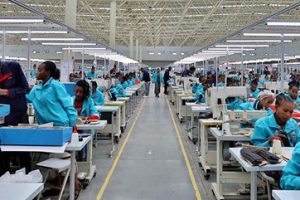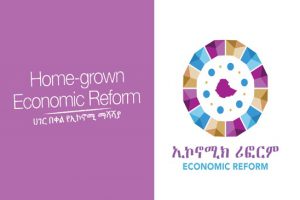
Ethiopia has introduced itself differently for the entire world. In deed Ethiopia is also well known for its competitiveness on the long distance races coupled with being the land of origin and the birth place of coffee Arabica as well. Owing to the fact that coffee is among the most export commodities across the world, the government of Ethiopia is working tirelessly jointly with private entrepreneurs, coffee farmers and unions in a way to boom the national economy.
Undoubtedly, coffee is also being used as a basic source of foreign currency for Ethiopia since long ago. Though it lasted state monopolized for long time, there are plenty of companies and associations that have been investing on coffee export at the moment. Be it is, it is believed that Ethiopia’s contribution in the international coffee market is less than 10 percent.
Regardless of its low share in the global market, being the origin of coffee beans, the achievement Ethiopia has registered in coffee exportation during the last fiscal year was the most remarkable when compared to the previous years’ performances, information obtained from the Ethiopian Coffee and Tea Authority indicates. According to the information, Ethiopia has earned 907 million USD from coffee export during the reported period.
The report further pointed out that the reform activities made by the authority in collaboration with the government and all stake holders have helped the authority to reach on this success. Accordingly, alleviating hassles which have been seen on the supply process, increasing the quality and quantity of coffee, and upgrading the volume of coffee from rank one to three were among the reform activities taken by the authority.
As to the report, working in unison with the government and the private trade communities is of paramount importance in order to upgrade the quality and quantity of Ethiopian coffee export in a way to compete with the international market.
Approached by The Ethiopian Herald, Gezahegn Mamo, CEO of Wild Coffee Ethiopia, said that as Ethiopia is the birth place of coffee, the country should get what it deserves. Mentioning his view that most Ethiopians think the Ethiopian coffee is well known in the face of the world, he express the reality on his experience that most people across the world thought that Brazil was the birth place of coffee. “Therefore”, he suggested: “In addition to promoting it is the origin of coffee beans, Ethiopia should increase its quality and quantity of the exported coffee items to be more competent and predominant.”
As to him, the government should work aggressively on promoting the Ethiopian coffee throughout the world. Underscoring that Ethiopia has been exporting raw coffee to the world market and got little in return in the previous years, he explained that the gigantic companies were getting better benefit through adding values on the Ethiopia’s coffee.

According to Gezahegn, it has been 4-5 years since Ethiopia started exporting value added coffee like exporting roasted coffee. “The former government didn’t support investors and coffee companies to export value added coffee to the international market. Thus, it was one of hindrances that prohibited most investors to be involved in the coffee production,” he said.
Gezahegn further said that value added coffee export is not just a mere solution for being benefited from exporting coffee, but rather it needs different procedures to be followed and applied before it is exported. “When we add value in to our products, it comes up with many advantages. For instance, the raw Ethiopian coffee is purchased with 1 or 2 USD, but the price of the value added coffee will be doubled or tripled”.
Owing to the fact that it is difficult to the coffee exporters to meet with new clients, the government jointly with different stake holders should work in unison to support the investors to earn better foreign currency for the country, he noted.
Moreover, exporting value added products has direct relation with job creation in the country. As the company follows the ‘semi-process’ method of production, the process needs a number of employees for each process. Mentioning that the Wild Coffee Ethiopia has its own coffee shop inside the company, the CEO underscores that the company has created more than 45 job opportunities.
The coffee shop is the first in Ethiopia the National Bank of Ethiopia has made an agreement with coffee exporters to sell export standard coffee with foreign currency. “Therefore, using this golden opportunity offered by the NBE, our company is the first to start selling at the coffee shop,” he noted.
The coffee shop is designed to help customers to taste the real exported coffee, and when customers ask for it, they need to pay in foreign currency. This is also one of the major activities done by the company which plays pivotal role in attracting foreign currency to the country. Additionally, the exchange is directly transacted with the government, Gezahegn remarked.
Applauding the current reformist government of Ethiopia for its significant support to encourage investors who are engaged in the coffee export, Gezahegn stated that getting land is still the challenging factor of the sector. He also pledged the current government to give solution for the company’s land problem which was asked before 7 years.
Underscoring their commitment to work jointly with the government, the CEO appreciated the government’s keenness to solve any problems related with the coffee export.
While speaking about how the coffee farmers are being benefited from the sector, he also applauded the Ethiopian Coffee and Tea Authority for establishing a new system which is vital for benefiting the farmers. The procedure enables exporters to buy the cash crop directly from suppliers outside the Ethiopian Commodity Exchange (ECX) floors, a system industry insiders call vertical integration, he stated.
As to him, this vertical integration has enabled farmers to reap the fruit of their hard work adding that is partly responsible for the increase in exports, disrupting long supply chains and enabling the price of a kilogram of coffee to rise by a dollar. It also increases the quality of the coffee.
While elaborating his point that in coffee customers at U.S and other European countries have a trend to ask about the situation of the coffee farmers and the origin of the coffee, he recommended all stakeholders to work closely with the farmers to be free from any accusations.
“Our company too, is working closely with the corporate unions and farmers. Furthermore, we have made an agreement with one of the world’s known supermarkets, ‘Walmart’. Through the help of ‘Fair Market Chain’ our company and Walmart have agreed to sell Ethiopian coffee online on Walmart’s platform,” Gezahegn said.
Adding to the point, he pointed out that this agreement will also help to pave a way to the whole stakeholders and the government to be benefited from it and maximize the company’s product and income as well. And it was also learnt that the Walmart has around six thousand branches across the world.
Gezahegn further mentioned that there are plenty of agreements in which the government of Ethiopia has made with international companies like Alibaba to promote Ethiopian products on its platform. Therefore, this will help to get more foreign exchange from the sector, he noted.
All stakeholders including the government should work in harmony because the future has better opportunities for Ethiopian coffee market. Besides, the government should provide facilities to the coffee investors to improve the quality and quantity of coffee production, he suggested.
BY DANIEL ALEMAYEHU
The Ethiopian Herald 10 September 2021





